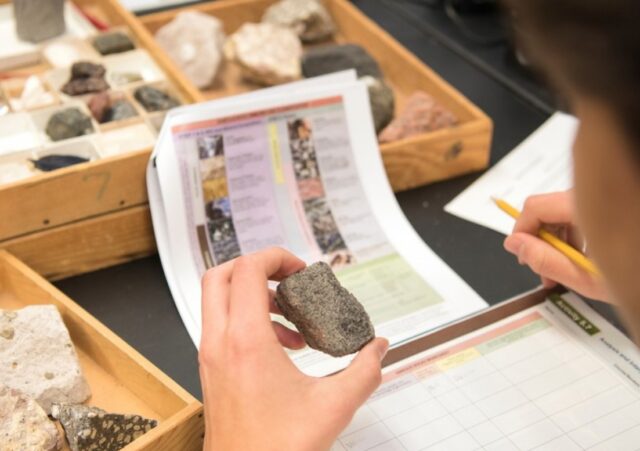
Education is an equalizer. It is the gateway to numerous opportunities in life. However, to make the most out of your time in college or university, it’s important to choose the right course in terms of career and employability.
In their academic life, students come across numerous subjects. When in high school, students are taught almost every subject to get an idea of what to expect in each subject and what opportunities it can offer in the future.
However, as they reach the college level, they are allowed to choose the subject that they will specialize in, depending on their career path.
Science is among the most common subjects that students choose. However, with the different courses under science, most students are left wondering what courses would be best for them. You shouldn’t worry, though. In this post, we shall highlight the best science courses you may want to study in college. But before that;

What are the Benefits of Studying Science?
There are many benefits to choosing science as the subject, including:
Varied Opportunities
Science is not just about the study of the universe and body parts. It involves the study of other things, including the environment. When studying science, you have the opportunity to either study a particular field in general or get into details of the many topics you never thought existed.
In-Depth Understanding of How Things Work
Subjects such as chemists, biology, and physics are full of scientific terms and concepts. Studying them gives you a great understanding of the world that we live in. In fact, as you continue to study it, many things that didn’t make sense before will start making sense. This way, you will become more aware of your surroundings.
Increases Your Analytical Skills
Science is not an easy subject. It has many complex concepts that will require students to study hard to understand them. For you to succeed in science, you need to be committed to your studies and pay much attention to the science homework given by your teacher.
If you’re having any difficulties, don’t hesitate to ask for help. The best thing is that you can get homework answers for science by connecting with online tutors and tutorials, on websites such as Homeworkmarket. This way, you’ll become more smart, intelligent, and progressive.
Remember, science is among the most crucial fields of study. Besides developing the advancements in technology, they have developed a cure to the world’s most dangerous diseases like cancer. If you do it well, you’ll earn respect among your peers and recognition in that field of study.

Top Science Courses You May Want to Consider
Now that you have seen the benefits of studying science and how you can get science homework answers, now let’s look at the best courses for science students.
1. Computer Science

We’re in the digital age and IT professionals are in high demand now more than ever. Studying computer science will not just allow you to be familiar with the technology and how to work but will ensure you’re always on demand. Among other things, you’ll study networking, language programming, and database management.
2. Medicine and Surgery

Medicine and surgery is another required science course you may want to study. Medicine involves a variety of practices aimed at enhancing people’s health through prevention and treatment. This can be through psychotherapy, pharmaceuticals, and surgery.
It will take between 11 and 14 years to become a doctor in the United States. Several universities in the US offer medicine courses, including Yale and Stanford.
3. Statistics/Mathematics

Since most organizations and industries rely on data to make key decisions, studying statistics and mathematics will not be a waste of your time. Careers under Mathematics and statistics include actuary, budget analyst, big data analyst, claims adjuster, business metrics analyst, control statistician, etc.
4. Microbiology

Microbiology involves the study of microscopic organisms like viruses, bacteria, protozoa, and fungi. These tiny organisms cause diseases, which can cause many deaths if not treated or managed.
A good example is the coronavirus pandemic which continues to affect millions of people across the world. If you like what the scientists are doing to curb the spread of this virus, then you may want to study microbiology.
5. Geology/Geophysics

If you would like to study the earth and how it works, studying geophysics will come in handy. Ideally, geophysics involves the study of water, energy, and mineral resources, all of which are fundamental to the needs of society.
It also goes ahead to include a wide range of careers, including natural hazard mitigation, natural resource exploitation, climate studies, satellite-based earth observation, archaeological studies, military applications, etc.
6. Data Analysis

Humans per capita are producing more data than ever before. Our social media and online activities create huge amounts of data. However, that data is less than useless if they are not categorized and organized in a way so that it makes sense for businesses. This is where data analysis comes in. Data analysis is a subsection of data science. Data analysts are the foot soldiers who are responsible for gathering data and then presenting them in a way to aid corporate decision making. Sounds simple right? It’s not. They are also responsible for extracting key performance data to serve any number of business goals.
7. Biostatistics

Medical researchers rely on biostatisticians to design trials to prove if a treatment or medicine is effective or not. They are the ones who collect the patient data from trials and then analyze that data and present it to the scientists. It’s not only critical it’s a field that should get prominence due to COVID-19.
8. Robotics

Robotics is a field that transformed from being science fiction to everyday reality. From assembly lines to interactive humanoids sold in countries like Japan, robotics can be a fun field. With the focus on automation in manufacturing, experts in robotics are always going to be in demand.









